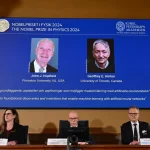
Scientists Unveil “Obelisks”: Mysterious Entities Found in Human Microbiome
February 8, 2024In a groundbreaking discovery, researchers at Stanford University have unearthed a novel class of biological entities residing within the human microbiome, christened “Obelisks.” These enigmatic structures, bearing resemblance to both viruses and viroids, have eluded scientific detection until now, presenting a puzzling addition to the intricate ecosystem thriving within us.
A Cryptic Presence Revealed
The unveiling of Obelisks marks a significant milestone in microbiome research, underscoring the boundless complexity of the microbial world within our bodies. Unlike familiar bacterial or viral strains, Obelisks defy categorization, boasting rod-like structures akin to viroids while harboring genomic features reminiscent of viruses.
Unprecedented Diversity and Ubiquity
Surprisingly, Obelisks exhibit staggering diversity and prevalence across human microbiome samples collected worldwide. Stanford scientists identified nearly 30,000 distinct variants of these entities within microbiome data from over 400 individuals spanning diverse geographic regions. Notably, Obelisks were detected in approximately 50% of oral microbiome samples and 7% of gut samples, highlighting their widespread yet inconspicuous presence.
A Veiled Purpose: Unraveling the Mystery
The role of Obelisks within the human microbiome remains shrouded in mystery, leaving researchers grappling with questions of their potential impact on host organisms. While their exact function is yet to be elucidated, hypotheses suggest that Obelisks may influence the dynamics of microbial communities, possibly aiding or antagonizing their microbial hosts.
Candidate for Investigation: Streptococcus sanguinis
Among the microbial inhabitants speculated to harbor Obelisks, Streptococcus sanguinis emerges as a promising candidate for further exploration. This common bacterium, prevalent in dental plaque, offers a tractable avenue for studying the interactions between Obelisks and their microbial hosts.
Charting New Frontiers in Microbiome Exploration
The discovery of Obelisks underscores the remarkable diversity concealed within the human microbiome and emphasizes the ongoing quest to decipher its intricacies. As researchers delve deeper into the enigmatic realm of Obelisks, they aim to unravel their biological significance and shed light on their potential implications for human health.
While the study awaits peer review, its findings stand as a testament to the relentless pursuit of knowledge within the burgeoning field of microbiome research, promising to unveil new insights into the complex interplay between microbes and their human hosts.
For More information:


















